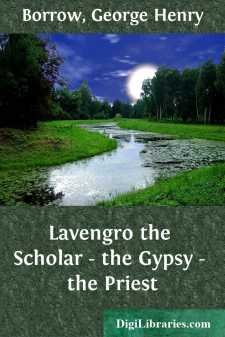Categories
- Antiques & Collectibles 13
- Architecture 36
- Art 48
- Bibles 22
- Biography & Autobiography 815
- Body, Mind & Spirit 144
- Business & Economics 28
- Children's Books 18
- Children's Fiction 14
- Computers 4
- Cooking 94
- Crafts & Hobbies 4
- Drama 346
- Education 58
- Family & Relationships 59
- Fiction 11834
- Games 19
- Gardening 17
- Health & Fitness 34
- History 1378
- House & Home 1
- Humor 147
- Juvenile Fiction 1873
- Juvenile Nonfiction 202
- Language Arts & Disciplines 89
- Law 16
- Literary Collections 686
- Literary Criticism 179
- Mathematics 13
- Medical 41
- Music 40
- Nature 179
- Non-Classifiable 1768
- Performing Arts 7
- Periodicals 1453
- Philosophy 65
- Photography 2
- Poetry 896
- Political Science 203
- Psychology 44
- Reference 154
- Religion 515
- Science 126
- Self-Help 85
- Social Science 83
- Sports & Recreation 34
- Study Aids 3
- Technology & Engineering 59
- Transportation 23
- Travel 463
- True Crime 29
Our website is made possible by displaying online advertisements to our visitors.
Please consider supporting us by disabling your ad blocker.
Grimhild's Vengeance Three Ballads
Description:
Excerpt
INTRODUCTION
Borrow and the Kjæmpeviser.
The modern poetical literature of Denmark opens with a collection of epical and lyrical poems from the Middle Ages, which are loosely connected under the title of Kjæmpeviser or Heroic Ballads. Of these the latest scholarship recognises nearly 500, but in the time of Borrow the number did not much exceed 200. These ballads deal with half-historic events, which are so completely masked by fantastic, supernatural and incoherent imagery that their positive relation to history can rarely be discovered. Nevertheless, they throw a very valuable light upon the manners of mediaeval society in Scandinavia, and they are often of high poetical beauty. No conjecture can be formed as to the authors of these ballads, and even the centuries in which they were composed are uncertain. Grimm believed them to be uralt, and attributed them to the 5th and 6th centuries. But on linguistic grounds, this extreme antiquity cannot be maintained. It is now supposed that they were composed at various times between 1300 and 1500, and that in their present form they bear the stamp of the period when they were first collected by the Danish antiquaries of the sixteenth century.
The circumstances in which this famous collection of folk-songs came into public notice were of a romantic nature. Sophia, Queen of Denmark, when sailing across the Sound in the year 1586, was driven by stress of weather to take shelter in the little island-harbour of Hveen, where the famous observatory stood, close by the house of the astronomer, Tycho Brahe. It so happened that at that very time Brahe was entertaining as a guest the most eminent Danish man of letters of that age, Anders Sörensen Vedel (1542–1616). Vedel, whose labours were encyclopædic, was engaged in preserving all the monuments of Danish mediaeval history and learning which he could discover in the monasteries and libraries of Denmark. He had been much encouraged in this work by the Monk of Roeskilde, Peder Olufsen, who on his death-bed, about 1570, had placed in Vedel’s hands all the MSS. which he had collected. Queen Sophia, cloistered in the Ouranienborg with her antiquary and her astronomer, and waiting for the tempest to moderate, desired to be amused with stories of her national history. Vedel ventured to read to her some of the legendary poems which still lingered among the people, and she was so enchanted with them, that she commanded him, when he returned to the mainland, to make a collection of these ballads and publish them.
Accordingly, in 1591, Vedel issued from the private printing-press in his house called Liljeborg at Ribe in Jutland, a selection of 100 mediaeval ballads, under the title of Et Hundred udvalgte danske Viser. This volume is one of the landmarks of Scandinavian, and indeed of European, literary history. Vedel made another collection, this time of ancient love-ballads, which he called Tragica; it was not published until 1657, long after his death. But the volume of 1591 is the fountain-head of all that has since been written about the Heroic Ballads of the North, and it is impossible to overrate the services of Vedel in preserving what was even then ready to disappear. It seems, moreover, that he was careful of the text, and later scholarship has come more and more to place confidence in his transcripts.
This was, unfortunately, not the case with the next pioneer in the same field, although he deserves great credit also. Peter Petersen Syv (1631–1702) was a very able philologist, who was also a minor poet of ambition. In 1695 he reprinted and edited Vedel’s text, adding 100 more kjæmpeviser which had been unknown to Vedel. But his work was not so well done; Syv was something of a pedant, and unfortunately either too critical or not critical enough. He ventured to correct the irregularities of the ballads, and not seldom has spoiled them. He bore the proud title of Philologer Royal of Denmark, and he was above all things else a grammarian. But he added to our store of Ballads. No one, during the eighteenth century, advanced on the labours of Vedel and Syv, and their treasuries of beautiful anonymous poetry seem to have attracted no attention in the rest of Europe....












